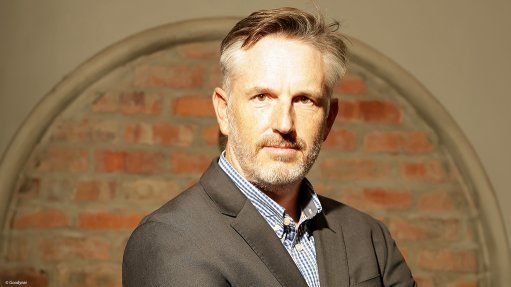A Resolved governance crisis in SOEs could lead to an industrial South Africa through the National State Enterprises Bill
This article has been supplied by the author and has not been written or solicited by Creamer Media. It may be available only for a limited time on this website.
The anaemic economic situation in South Africa, born out of incompetent economic management, has a strong correlation with political legitimacy and survivability, Bongani Mankewu argues.
In recent years, every institutional arrangement of the South African government has served as a poster child for malfeasance in governance. Critically, state-owned enterprises (SOEs) were proven to be inefficient quasi-government departments that posed no meaningful competitive threat to privately owned corporations but instead were a serial menace to the overall economy.
South Africa is perfecting an emerging economy where no governance is the alternative to government control. The National State Enterprises Act, 2023, with all its facets, replaces the Ministry of Public Enterprise with State Asset Management SOC Ltd (SAM). The President, rather than the Minister of Public Enterprise, represents SAM's shareholders.
The National State Enterprises Act, while vague in its approach to better governance, clearly paves the way for the establishment of SAM. Rather, accountability is compromised and governance is made more difficult in the process of transferring the Department of Public Enterprises to the SAM, where the President becomes the shareholder representative. Furthermore, the objectives as stated in the “National State Enterprises Bill” fall short of illuminating the rapidly rising, uncontrollable crisis within SOEs that remarkably dominates the public domain: ineffective governance, dire financial conditions, a lack of agility, and imperceptible developmental impact to name a few. Each factor impinging on the efficiency and effectiveness of SOEs has its roots in governance, which this reform attempt neglects to address.
Although the independent panel's crucial role in choosing the Board of Directors is acknowledged in the revised National State Enterprises Bill, it is still unclear why such a widely supported proposal took so long to pass. There is distinctive significance in knowing that this endeavour seeks to revive governance through moral and ethical leadership that will establish a culture of honesty at all levels, including government and society at large.
It is uncanny that, given the social ills, the National House of Traditional and Khoi-San Leaders should not be consulted regarding this Bill following Section 39(1)(a) of the Traditional and Khoi-San Leadership Act, 2019 (Act No. 3 of 2019), contrary to democratic principles.
The overall argument might seem to support restoring constitutional governance, but ignoring the directives of the Constitution would prove detrimental. Furthermore, this directly undermines the Traditional Authority's role as 'custodian of the land' and reservoir of values.
Through the National State Enterprises Act 23, SOEs can be repurposed to achieve efficient and successful economic management and, therefore, industrial development. With the utility of State-Owned Enterprises in Singapore: Historical Insights into a Potential Model for Reform” (Tan et al., 2015) and the consolidation in comparison with other studies about the Singaporean Government Link Corporations (GLC) Model, the comparison is made with South Africa.
There are two broad tenets of comparative corporate law theory. First, the notion that corporate governance systems are convergent towards a market-oriented (American) model of shareholder-centric corporation is challenged by the success of the Singapore GLC Model and China's desire to imitate it.
Second, the fundamental belief that private industry, as opposed to the government, is inherently more adept at allocating capital to its most advantageous use is called into question by the Singapore GLC model's success. Empirical data in Singapore's case indicate that the opposite might be true, at least under specific conditions. Accordingly, these two principles have a relative impact on South Africa's efforts to rescue and amend the ongoing malfeasance at SOEs. As such, the goals of the National State Enterprises Act and the establishment of the SAM should address these obstacles to the country's economic prosperity and social well-being.
As opposed to South Africa, Singapore does not possess abundant mineral resources. Governance has played a significant role in Singapore's success. The American-global model of good corporate governance seems to view Singapore as a model case study based on the theory that a dispersed-held, shareholder-centric Berle-Means corporation is the epitome of efficiency. This is because Singapore is ranked highly for regulation, free markets, and corporate governance. A deeper investigation below the rankings, however, reveals that Singapore's corporate governance model is fundamentally different from American practices. Shareholder-centric, dispersed-held Berle-Means corporations do not exist in Singapore. Conversely, Singapore's corporate governance framework relies heavily on government-owned companies. Because they operate more leanly, Singapore's GLCs have a lower expense-to-sales ratio, which suggests they are more profitable.
The question that arises is why Singapore GLCs were exceptional in this regard and whether such exceptionalism is transplantable. To think of the possible transplantation of the model, comparisons between Singapore and South Africa make sense because of their shared colonial past. The political and social climate of Singapore during its initial period of self-governance and eventual independence had a significant impact on the establishment and management model of the GLCs. However, when New South Africa was founded, the nation already had successful state-owned companies and development finance institutions. For the majority of the population, who were primarily black, social conditions were intolerable.
The People's Action Party (PAP), which has ruled Singapore since independence, had a shaky grip on power at the time, which was particularly significant. The PAP sought to improve the life conditions of Singaporeans to gain more legitimacy and support, which required sound economic management. Developing the economy outside of entrepot trade was a crucial component of this approach. The country's industrialization plan included the establishment of GLCs as a key component. In Singapore, there was a strong correlation between competent economic management, political legitimacy, and survivability.
Upon gaining independence and establishing a constitutional democracy, the ANC solely possessed political legitimacy. It was assumed that the ANC would eliminate existential racial inequality brought about by Apartheid and boost South Africa's export-oriented economy to maintain its legitimacy. Unlike Singapore, the ANC had to leverage the inherent mineral resources while using SOEs and DFIs as industrialization instruments to sustain this level of global competitiveness. Along with having abundant mineral resources, 1994 was also the best year for South Africa to establish the Sovereign Wealth Fund, which would eventually acquire ownership of the mining companies while granting their executives legal protection and independence from political meddling.
The SWF might have been the most effective way to fund the Reconstruction and Development Program to brutally bridge unacceptable, existential inequality. In contrast to Singapore, South Africa has found a strong correlation between political legitimacy, survivability, and incompetent economic management. As a result, admirable revolutionary initiatives like Broad-Based Black Economic Empowerment amount to nothing more than platforms for corruption.
Therefore, it is expected that the objectives of the National State Enterprises Act and the reformation of SOEs will bring about efficient economic management, build globally competitive value chains, and advance the development of an industrial plan in adherence to the National Development Plan. The logical urgency for this stems from the unjust relationship pattern of political survival through economic mismanagement, which created the economic turmoil that all South Africans had to endure and bear with suffering. This National State Enterprises Act is an opportunity to bring South Africa back to the aspirant values of competent economic management with a strong correlation to political legitimacy and survivability. Thus, this National State Enterprise Act can be repurposed for better utilization of SOEs. Unfortunately, based on the observation of the approach, the opposite is what is expected. By some miracle or other, a patriotic and long-term solution to the governance crisis that appears to be jeopardizing the South African economy must be found; however, success is a prerequisite.
Many industry bodies have made recommendations regarding governance within SOEs. More recently, the Zondo Commission has added accountability and transparency to the appointment processes, as well as ongoing independent monitoring. These suggestions are in collaboration with those of industry associations and specialists, who all support the appointment of an oversight committee chaired by a retired judge and made up of members from the legal, auditing, and engineering professions, as well as a ministerial delegate and one of the relevant SOE sectors. This committee would also create a code of conduct with mechanisms for tracking the developmental impact that is leaning toward the advancement of industrialization. Additionally, this committee would recommend names for appointment to SOEs to the relevant minister. It is appreciated that the principle underlying these recommendations was considered in the most recent version of the bill.
This requires leadership that is above reproach, selfless rather than solipsistic, solitary, and rapacious for personal survival. This is something sadly lacking in the sophistry-dominated political environment in South Africa.
Bongani Mankewu is the Director of the Infrastructure Finance Advisory Institute.
Comments
Press Office
Announcements
What's On
Subscribe to improve your user experience...
Option 1 (equivalent of R125 a month):
Receive a weekly copy of Creamer Media's Engineering News & Mining Weekly magazine
(print copy for those in South Africa and e-magazine for those outside of South Africa)
Receive daily email newsletters
Access to full search results
Access archive of magazine back copies
Access to Projects in Progress
Access to ONE Research Report of your choice in PDF format
Option 2 (equivalent of R375 a month):
All benefits from Option 1
PLUS
Access to Creamer Media's Research Channel Africa for ALL Research Reports, in PDF format, on various industrial and mining sectors
including Electricity; Water; Energy Transition; Hydrogen; Roads, Rail and Ports; Coal; Gold; Platinum; Battery Metals; etc.
Already a subscriber?
Forgotten your password?
Receive weekly copy of Creamer Media's Engineering News & Mining Weekly magazine (print copy for those in South Africa and e-magazine for those outside of South Africa)
➕
Recieve daily email newsletters
➕
Access to full search results
➕
Access archive of magazine back copies
➕
Access to Projects in Progress
➕
Access to ONE Research Report of your choice in PDF format
RESEARCH CHANNEL AFRICA
R4500 (equivalent of R375 a month)
SUBSCRIBEAll benefits from Option 1
➕
Access to Creamer Media's Research Channel Africa for ALL Research Reports on various industrial and mining sectors, in PDF format, including on:
Electricity
➕
Water
➕
Energy Transition
➕
Hydrogen
➕
Roads, Rail and Ports
➕
Coal
➕
Gold
➕
Platinum
➕
Battery Metals
➕
etc.
Receive all benefits from Option 1 or Option 2 delivered to numerous people at your company
➕
Multiple User names and Passwords for simultaneous log-ins
➕
Intranet integration access to all in your organisation


















